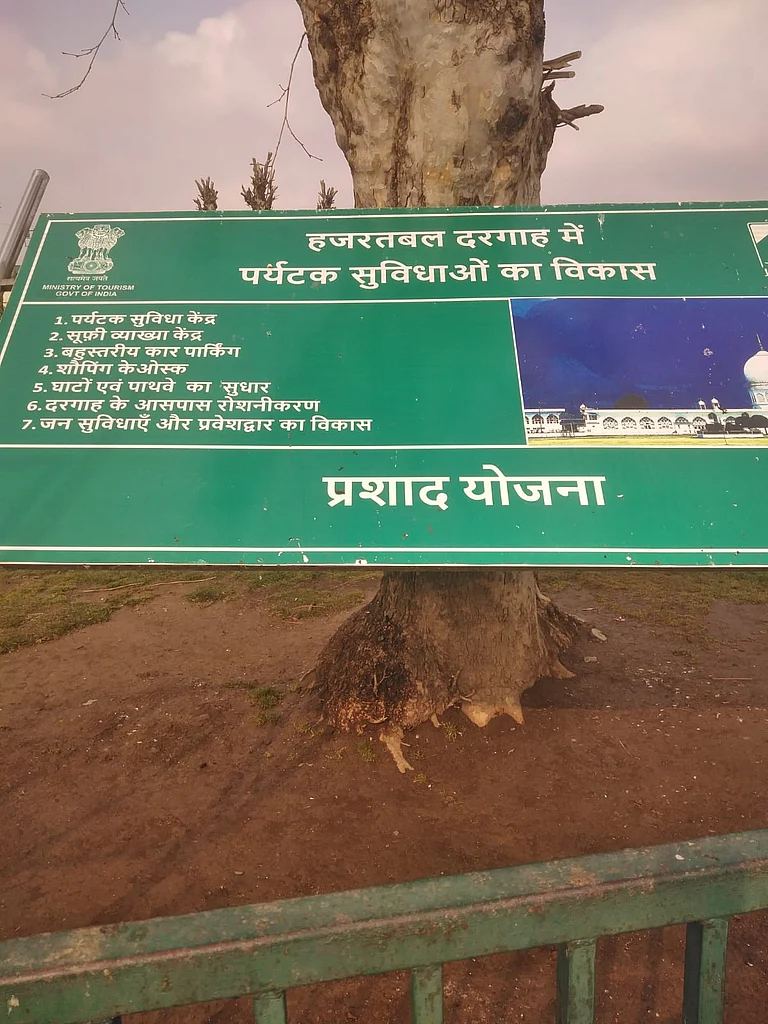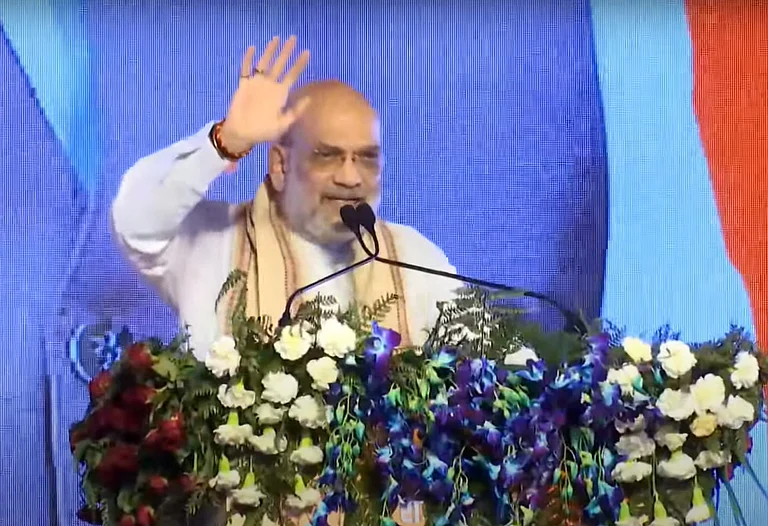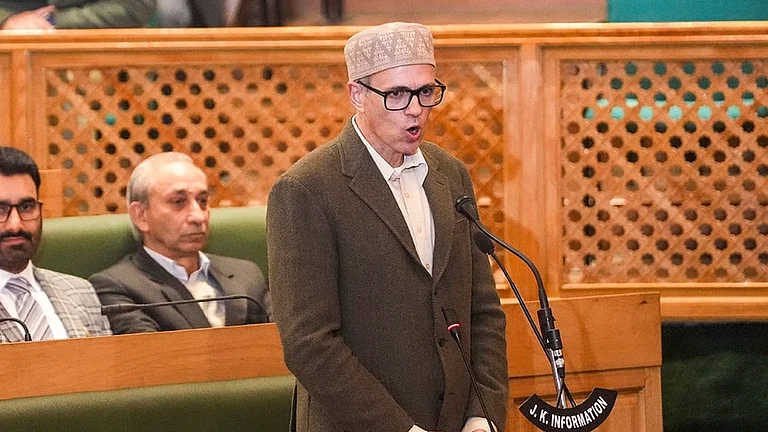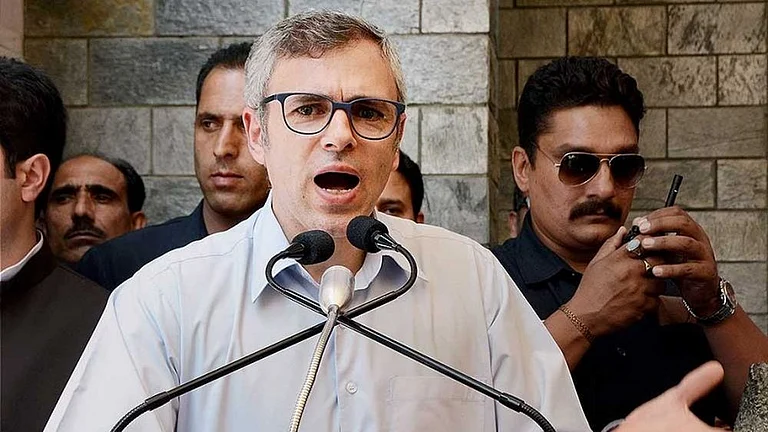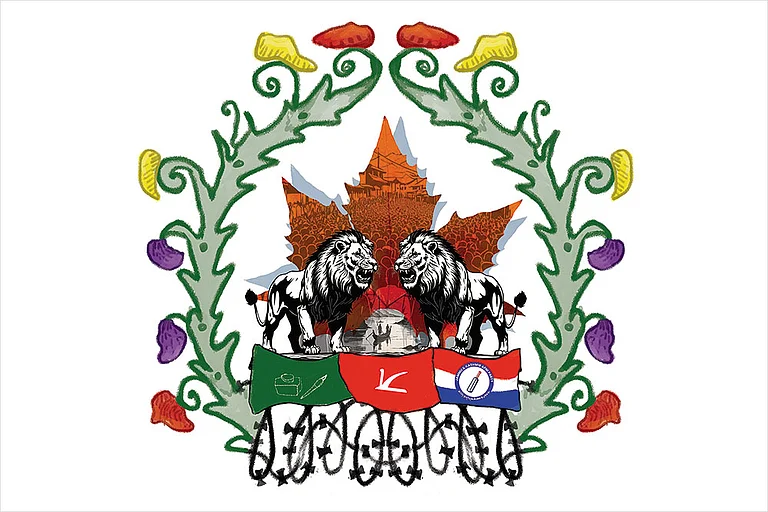In his first speech in Srinagar since the Lok Sabha polls, Prime Minister Narendra Modi on Thursday evening promised Assembly elections in Jammu and Kashmir and restoration of the statehood to the Union Territory “soon”. However, the regional parties are sceptical more than convinced about it.
“The people of Jammu and Kashmir elect their representatives at the local level; through them, you find ways to solve problems. What can be better than this,” the Prime Minister asked while speaking at the Sheri Kashmir International Convention Centre on the banks of the Dal Lake here. “Therefore, now the preparations for the Assembly elections have also started. The time is not far when you will elect the new government of Jammu and Kashmir with your votes. That day will also come soon when Jammu and Kashmir will once again make its future better as a state,” he said.
However, regional political leaders have doubts given the long delay in holding Assembly elections in J&K. “Just so you know, the ECI must follow the Supreme Court's timeline for elections, while the government’s sole responsibility is to ensure a peaceful election atmosphere. Regarding statehood, we've heard it will be restored "soon" over 20 times in four years. Spoiler – "soon" is still nowhere near,” Tanvir Sadiq, National Conference vice-president Omar Abdullah’s political advisor was quick to react.
While the PDP leader Waheed-ur-Rehman Parra compared this “soon” with the Prime Minister’s similar assurance for Assembly elections to Jammu and Kashmir soon after the abrogation of Article 370 on August 5, 2019. Parra shared a report Reuters of August 8, 2019, on X which reads: “India to hold state Assembly elections in J&K soon: Modi. “
While remembering former Prime Minister Atal Bihari Vajpayee’s oft-quoted quote of Insaaniyat (Humanism), Jamhuriyat (Democracy) and Kashmiriyat (syncretic culture of Kashmir), Modi said he saw Vajpayee’s dream being realised in today’s Kashmir as in Parliamentary elections, the region saw democracy winning with voter turnout breaking all previous records of the past 30 to 40 years. He attributed this change in J&K to his government’s efforts over the past ten years. He said for the first time, the Indian constitution was fully implemented while the wall of Article 370 had been broken down.
The Apni Party and the Bharatiya Janata Party described the statement of Prime Minister Modi as significant, saying it brought hope and cheer among people.
“Prime Minister's announcement that preparations for the assembly elections have begun and that J&K will get back its statehood is highly significant,” said Altaf Bukhari, president of the Apni Party. “People have been eagerly waiting for the fulfilment of the promise for the restoration of statehood to J&K and their democratic right to choose their own representatives to place them at the helm. PM's announcement has brought a wave of hope and cheer,” Bukhari said. The Apni party was formed after the abrogation of Article 370 and is often accused by the National Conference as a B-team of the BJP, charges that the Apni Party denies.
The Prime Minister’s announcement in Srinagar has come at a time, when many experts cite recent militant attacks in Jammu as a reason to seek postponement of the elections.
However, the narrative this time has been created by the former Army Chief General V P Malik. Malik in his recent interviews has stated, “We must not be in a hurry in holding elections in September” given the militant surge in Jammu. Malik advocated that elections should be postponed till next year. Malik is the first top former Army chief to seek postponement of the polls, creating furore among the people of Jammu and Kashmir who have been waiting for the elections since June 19, 2018, when the People’s Democratic Party (PDP) and Bharatiya Janata Party coalition government fell.
Thirteen months later, the BJP government on August 5, 2019, repealed Article 370 and turned J&K into two union territories – J&K and Ladakh – amid a communication blockade and arrest of thousands including three former Chief Minister, Dr Farooq Abdullah, Mehbooba Mufti and Omar Abdullah.
Former Chief Minister and National Conference vice-president Omar Abdullah rejected any suggestion for postponing Assembly polls given the terror attacks. He says postponing elections due to the terror attacks amounts to “giving in to these extremist forces so that they have a sense of achievement”.
“You have NO gains in Kashmir if militant outfits are able to derail the elections that the PM, HM and Election Commission have committed to holding before the SC deadline of September 30,” Omar said.
The Supreme Court, in its decision on December 11 last year, while upholding the abrogation of Article 370, directed the Election Commission of India to hold elections in Jammu and Kashmir by September 30, 2024. Chief Justice DY Chandrachud, leading a five-judge Constitution bench, said that direct elections were a paramount feature of democracy and could not be withheld. However, the political parties now are accusing the BJP of creating a narrative against Assembly polls.
“What’s more surprising is that this has come from an army officer who saw Lok Sabha polls happening in J&K soon after the Kargil War and during the height of militancy in 1999. What a shame!” Omar said.
Mohit Bhan, the spokesman of the PDP said, the recent massive turnout in parliamentary elections shows the people's commitment to the democratic process. “Further postponement will only alienate them and dent the belief in institutions. There is no valid reason to delay assembly elections when people are ready to elect their representatives. Timely elections are crucial for addressing regional grievances and ensuring good governance,” he added.
He says any delay undermines democratic rights and puts a question mark on the Government of India's claims of normalcy and stability you can’t have the cake and eat it too.
In the recently concluded Lok Sabha polls, Jammu and Kashmir witnessed its highest poll participation in the last 35 years. The combined voter turnout (VTR) at the polling stations across all seats in J&K was 58.46%. Jammu and Kashmir comprises five parliamentary constituencies, Srinagar, Baramulla, Anantnag Rajouri, Udhampur and Jammu.
According to the ECI, the poll participation percentage witnessed a 30-point jump from the last general election in 2019 where it was 19.16%. The three constituencies in the Valley – Srinagar, Baramulla and Anantnag-Rajouri – recorded a VTR of 38.49%, 59.1% and 54.84% respectively, the highest in the last three decades. The other two constituencies, Udhampur and Jammu recorded 68.27% and 72.22% voter turnout, respectively. In the parliamentary polls, electors in the age group of 18-59 years formed the major part of electors in J&K.
On July 8, the Election Commission of India (ECI) announced that it has decided to accept applications seeking allotment of common symbols under Para 10B of the Election Symbols (Reservation & Allotment) Order 1968 for the General Election to the Legislative Assembly of the Union Territory of Jammu and Kashmir with immediate effect. However, the ECI didn't announce any dates.
Although the announcement generated a brief buzz, unless the dates for the Assembly elections and the restoration of statehood to J&K are announced, any "soon" might still be far off.








